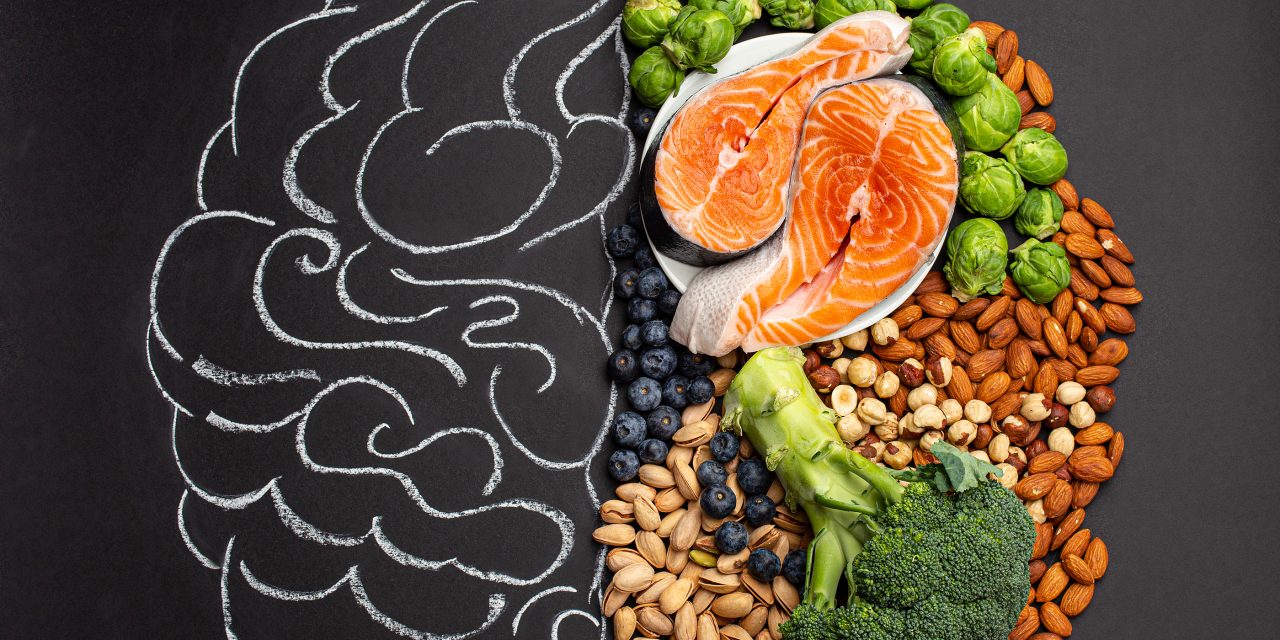The connection between diet and cognitive function has long been a subject of interest for scientists and nutritionists alike. As research uncovers the numerous ways in which the food we consume affects the brain’s performance, it’s becoming increasingly clear that adopting a nutrient-rich diet can play a crucial role in preserving and enhancing memory. In particular, there are specific nutrients and foods known to support cognitive function, fostering mental sharpness and potentially reducing the risk of memory-related decline.

Understanding the link between diet and memory involves delving into the science behind the nutrients that cater to cognitive health. Equally important is being aware of the types of foods rich in these nutrients, as well as incorporating them into a well-rounded diet. Additionally, recognizing any detrimental foods or habits that negatively impact memory is imperative in maintaining optimal cognitive function. Examining factors such as hydration, gut health, and micronutrient deficiencies further provides a comprehensive picture of the overall well-being of the mind as it relates to dietary choices.
Key Takeaways
- Consuming nutrients that support cognitive function can help improve memory and mental sharpness
- Awareness of memory-boosting foods, along with avoiding detrimental habits, is crucial for cognitive health
- Hydration, gut health, and micronutrient balance play important roles in maintaining optimal memory function
Nutrients Beneficial for Memory

The human brain constantly rebuilds and repairs itself, requiring a steady stream of quality nutrients to function optimally. This section describes three key nutrients that contribute to better memory function: antioxidants, omega-3 fatty acids, and B vitamins.
Antioxidants
Antioxidants are crucial for promoting memory and cognitive function. They help protect the brain from harmful free radicals and oxidative stress, which can cause damage to brain cells. Common antioxidant-rich foods include:
- Fruits: berries (e.g., blueberries, strawberries, and blackberries), cherries, prunes, and oranges
- Vegetables: dark leafy greens (e.g., spinach, kale, and Swiss chard), beets, and broccoli
- Nuts and seeds: walnuts, pecans, chia seeds, and sunflower seeds
- Spices and herbs: turmeric, cinnamon, rosemary, and ginger
Incorporating these foods into a balanced diet gives the brain the antioxidants it needs to function efficiently and maintain memory function.
Omega-3 Fatty Acids
Omega-3 fatty acids play a significant role in maintaining healthy brain function and promoting memory capabilities. These fats help build and repair brain cells and improve communication between them. The primary dietary sources of omega-3 fatty acids are:
- Fatty Fish: salmon, mackerel, sardines, and trout
- Nuts and Seeds: flaxseeds, chia seeds, and walnuts
- Vegetable Oils: flaxseed oil and canola oil
Regularly consuming omega-3-rich foods can contribute to enhanced memory and cognitive abilities.
B Vitamins
B vitamins, especially B6, B9 (folic acid), and B12, are essential for brain health and memory function. These vitamins contribute to the production of neurotransmitters and support the optimal functioning of the nervous system. Foods rich in B vitamins include:
| Food Group | Examples |
|---|---|
| Poultry | chicken, turkey |
| Dairy | milk, yogurt, cheese |
| Whole Grains | whole wheat, brown rice, quinoa |
| Leafy greens | spinach, kale, collard greens |
| Legumes | beans, lentils, chickpeas |
Adequate consumption of B vitamins can help the brain produce necessary chemicals and maintain a healthy nervous system to support memory function.
Foods Rich in Memory-Boosting Nutrients
Leafy Green Vegetables
Leafy green vegetables like kale, spinach, and broccoli are packed with memory-boosting nutrients. These vegetables are rich in vitamin K, folate, and beta carotene. Vitamin K is known to improve cognitive function, while folate has been linked to better memory performance.
- Kale
- Spinach
- Broccoli
Fatty Fish
Fatty fish are an excellent source of omega-3 fatty acids. These essential fatty acids play a crucial role in brain function, including memory improvement. Some examples of fatty fish that are especially beneficial for memory include:
- Salmon
- Tuna
- Sardines
- Mackerel
Berries and Dark-Skinned Fruits
Berries and dark-skinned fruits contain antioxidants called anthocyanins and flavonoids. These compounds have been shown to improve memory function and maintain cognitive health. Some examples of these memory-enhancing fruits include:
- Blueberries
- Raspberries
- Strawberries
- Blackberries
- Grapes
- Acai Berries
Nuts and Seeds
Nuts and seeds are rich in vitamin E and healthy fats, all of which contribute to better memory function. Regular consumption of nuts and seeds has been linked to cognitive improvements, such as increased focus and memory retention. Some great choices in this category are:
- Walnuts
- Almonds
- Hazelnuts
- Sunflower seeds
- Pumpkin seeds
Whole Grains
Consuming whole grains as part of a balanced diet can have a positive impact on memory and cognitive function. Whole grains are rich in fiber, which aids in maintaining a consistent flow of energy to the brain. They also contain B vitamins, which support brain health. Some popular whole grain options include:
- Brown rice
- Quinoa
- Whole wheat bread
- Oatmeal
- Barley
Brain-Healthy Diets
Mediterranean Diet
The Mediterranean Diet is widely acknowledged as a brain-boosting nutritional plan. It puts emphasis on:
- Fruits and vegetables
- Whole grains
- Legumes and nuts
- Fish and seafood
- Olive oil
- Moderate consumption of wine
This diet encourages limited intake of red meat and replaces butter with healthier fats like olive oil. Research has shown that the Mediterranean Diet supports cognitive health and may lower the risk of developing Alzheimer’s disease.
DASH Diet
DASH (Dietary Approaches to Stop Hypertension) is originally designed to fight hypertension, but it may also positively influence memory and cognition. The key components of this diet are:
- Fruits and vegetables
- Low-fat dairy products
- Whole grains
- Nuts and seeds
- Lean meats, poultry, and fish
DASH emphasizes limited sodium intake, as well as saturated fats and sugar. A focus on nutrient-dense foods provides important vitamins and minerals that support brain function.
MIND Diet
The MIND (Mediterranean-DASH Intervention for Neurodegenerative Delay) Diet is a combination of the Mediterranean and DASH diets, specifically targeting brain health. It highlights 10 brain-healthy food groups:
- Green leafy vegetables
- Other vegetables
- Berries
- Nuts
- Olive oil
- Whole grains
- Fish
- Poultry
- Beans
- A glass of wine
This diet also outlines five less-healthy food groups to minimize:
- Red meats
- Butter and margarine
- Cheese
- Pastries and sweets
- Fried or fast food
Research suggests that adhering to the MIND Diet could significantly reduce the risk of developing Alzheimer’s disease and slow down cognitive decline.
Incorporating these diets into one’s lifestyle can contribute to better memory and overall brain health. Consuming nutrient-rich, unprocessed foods, and avoiding unhealthy fats and added sugars are common factors shared by the Mediterranean, DASH, and MIND diets, all of which promote brain health and cognitive function.
Spices and Herbs for Cognition
The inclusion of spices and herbs in one’s diet can contribute positively towards enhancing cognitive abilities. Some noteworthy spices and herbs that are known to boost memory are:
Turmeric
Turmeric is a widely used spice in many cuisines and is known for its anti-inflammatory and antioxidant properties, which can help improve brain health. The active ingredient in turmeric, curcumin, is responsible for these benefits and has been shown to:
- Protect against neurodegenerative diseases
- Improve overall cognitive function
- Boost memory
To incorporate turmeric into your diet, consider adding it to soups, stews, or beverages like golden milk.
Sage
Sage, another herb with powerful antioxidant and anti-inflammatory properties, is a promising cognitive enhancer. Research has linked sage with improved memory and cognitive function through its impact on:
- Reducing oxidative stress in the brain
- Modulating the neurotransmitter acetylcholine
Ways to include sage in your diet:
- Add fresh or dried sage to poultry dishes
- Brew sage tea with a few leaves
- Incorporate sage into homemade salad dressings
Cinnamon
Cinnamon is a popular spice, not just for its flavor but also for its potential cognitive benefits. Compounds found in cinnamon, such as cinnamaldehyde and epicatechin, may:
- Protect brain cells from oxidative stress
- Reduce inflammation in the brain
- Enhance memory and learning abilities
To incorporate cinnamon into your daily routine:
- Sprinkle ground cinnamon on oatmeal, yogurt, or in a smoothie
- Add cinnamon sticks to hot beverages like tea or coffee
- Use cinnamon in dishes like Moroccan chicken or rice pudding
By including these spices and herbs in your diet, you can experience their memory-enhancing properties. Coupled with a balanced diet and healthy lifestyle, these natural ingredients can offer great support for optimal cognitive performance.
Hydration and Memory
Water Intake
Adequate water intake is crucial for maintaining optimal brain function and overall health. The brain is about 70% water, and even mild dehydration can negatively impact cognitive function. For this reason, it is essential to drink an adequate amount of water throughout the day.
The recommended daily water intake varies depending on factors such as age, sex, and activity level. The general guideline is to drink eight 8-ounce glasses of water per day, also known as the “8×8 rule.” Here is a brief table summarizing daily water intake recommendations:
| Age Group | Daily Water Intake (Males) | Daily Water Intake (Females) |
|---|---|---|
| 14-18 years | 3.3 liters (112 ounces) | 2.3 liters (78 ounces) |
| 19-30 years | 3.7 liters (125 ounces) | 2.7 liters (91 ounces) |
| 31-50 years | 3.7 liters (125 ounces) | 2.7 liters (91 ounces) |
| 51-70 years | 3.7 liters (125 ounces) | 2.7 liters (91 ounces) |
| 70+ years | 3.7 liters (125 ounces) | 2.7 liters (91 ounces) |
Note: These recommendations are not absolute, and individual needs may vary.
Herbal Teas
In addition to water, herbal teas can be a beneficial way to maintain your hydration levels and support memory function. Some herbal teas contain antioxidants and anti-inflammatory compounds that can boost brain health. Here are a few herbal teas known for their memory-enhancing properties:
- Gingko Biloba Tea: Gingko biloba is widely used in traditional Chinese medicine and is associated with improved cognitive function, memory retention, and concentration.
- Rosemary Tea: Rosemary contains a compound called carnosic acid, which can protect the brain from free radical damage and improve memory.
- Peppermint Tea: Peppermint tea is believed to enhance memory, focus, and mental clarity by stimulating the central nervous system.
Remember to opt for caffeine-free herbal teas as excessive caffeine intake can lead to dehydration. Incorporating herbal teas into your daily routine can help keep you hydrated and promote cognitive function.
Avoiding Foods Detrimental to Memory
In order to promote optimal memory function, it is essential to not only consume memory-boosting foods but also avoid those that can be detrimental. This section will discuss the effects of processed foods, sugary drinks, and trans fats on cognitive health.
Processed Foods
Processed foods, often high in refined sugars and unhealthy fats, can negatively impact memory and cognitive function. These include products such as:
- Fast food: burgers, fries, and fried chicken
- Packaged snacks: cookies, chips, and candy bars
- Frozen meals: pizzas and microwaveable dinners
- Processed meats: hot dogs, sausages, and cold cuts
Limiting the consumption of these foods and opting for whole, unprocessed alternatives (e.g. fresh fruits, vegetables, and lean meats) can help maintain a healthy brain and support memory function.
Sugary Drinks
Sugary drinks, like sodas, energy drinks, and many flavored coffee beverages, can pose a threat to brain health and memory function. Excess sugar consumption has been linked to poor memory performance and reduced brain volume.
Consider replacing sugary drinks with healthier options such as:
- Water: plain, carbonated, or infused with fruits
- Herbal tea: unsweetened or lightly sweetened
- Black coffee: without added syrups or sugars
- Unsweetened milk alternatives: such as almond, soy, or oat milk
Incorporating these beverages can aid in overall cognition and memory function.
Trans Fats
Trans fats are a type of unhealthy fat found in many packaged and processed foods. Consuming trans fats can be harmful to memory, as they have been associated with reduced cognitive performance and increased inflammation in the brain. Foods high in trans fats include:
- Fried foods: French fries, fried chicken, and doughnuts
- Bakery products: pastries, cakes, and pies
- Packaged snacks: microwave popcorn and many chips
- Margarines and shortenings: often used in processed foods
Avoiding or reducing the intake of trans fats in favor of healthier fats, such as those found in avocado, nuts, and olive oil, can contribute to better memory and cognitive health.
The Role of Gut Health
A healthy gut plays a significant role in cognitive functioning and memory improvement. Maintaining a proper balance of gut bacteria not only benefits digestion but also indirectly impacts the brain’s health. Two key factors contributing to gut health are probiotics and fermented foods.
Probiotics
Probiotics are live bacteria and yeasts that support the body’s digestive system. They are considered good bacteria because they help maintain a balance between beneficial and harmful gut bacteria. Taking probiotics through supplements or consuming natural sources is essential for mental health, including memory enhancement.
Some probiotic-rich foods include:
- Yogurt
- Kefir
- Sauerkraut
- Kimchi
- Miso
Studies have shown that consuming probiotics can lead to an increase in brain-derived neurotrophic factor (BDNF), which is essential for learning, memory, and cognitive function. Including probiotics in daily diet is a great step towards better gut and brain health.
Fermented Foods
Fermented foods, rich in beneficial bacteria, are another essential component for improving gut health. These foods undergo a process where natural bacteria feed on sugar and starch, creating beneficial byproducts called short-chain fatty acids (SCFAs). SCFAs have anti-inflammatory properties that can help protect the brain from diseases.
Some examples of fermented foods include:
- Tempeh
- Pickles
- Kombucha
- Sourdough bread
- Natto
Including these foods in our daily diet can enhance memory function by providing the necessary nutrients and maintaining a healthy gut. A balanced diet containing probiotics and fermented foods creates an optimal environment for brain health and improved memory retention.
Impact of Micronutrient Deficiencies
Iron
Iron is a vital micronutrient that plays a crucial role in various cognitive functions. When there is an iron deficiency, it can lead to impaired memory and reduced learning ability.
Some iron-rich foods that can help improve memory are:
- Lean meat
- Fish
- Beans
- Spinach
- Tofu
It’s important to consume these foods regularly to maintain optimal iron levels in the body and promote good memory function.
Vitamin D
Another essential micronutrient for cognitive health is Vitamin D. Deficiencies in Vitamin D are associated with memory decline and an increased risk of developing Alzheimer’s disease.
Here are some great sources of Vitamin D:
- Fatty fish (e.g., salmon, mackerel)
- Beef liver
- Egg yolks
- Fortified dairy and non-dairy products
Incorporating these foods into your diet can help improve memory function and protect against memory decline.
Magnesium
Lastly, Magnesium is a critical micronutrient linked to memory performance. A deficiency in magnesium can impair synaptic plasticity, resulting in poorer memory function.
To ensure adequate magnesium intake, consider including these foods in your diet:
| Food | Magnesium Content (per 100g) |
|---|---|
| Pumpkin seeds | 534 mg |
| Almonds | 268 mg |
| Spinach | 79 mg |
| Black beans | 70 mg |
| Banana | 27 mg |
In conclusion, maintaining proper levels of iron, vitamin D, and magnesium is essential for optimal memory function. Incorporating these micronutrients into your diet can help improve cognitive performance and overall brain health.
Food Preparation and Preservation
Cooking Methods
There are specific cooking methods that can help to retain the nutrients in memory-enhancing foods:
- Steaming: This efficient method locks in essential nutrients while preventing nutrient loss due to high heat. Ideal for vegetables like broccoli and spinach.
- Grilling: Grilled fish, especially salmon, mackerel, and trout, are abundant in omega-3 fatty acids. Use olive oil to preserve the fish’s healthy fats.
- Baking: This method allows you to cook without adding unhealthy fats. It works great for preparing nuts and seeds to maintain their nutrient profile.
When cooking these memory-boosting foods, remember to avoid overcooking and using excessive amounts of unhealthy fats. Opt for healthier oil alternatives like olive or coconut oil.
Food Storage
Proper food storage is crucial to maintaining the nutrients in memory-enhancing foods. Here is a brief guide to preserving and storing these foods:
- Fruits and vegetables: Store them separately in the refrigerator’s crisper drawers to maintain freshness. To store leafy greens, wrap them in a damp paper towel inside an airtight container.
- Fish: Keep fresh fish in the refrigerator for up to two days. For longer storage, wrap it tightly and store it in the freezer.
- Nuts and seeds: To preserve their natural oils and avoid spoilage, store them in an airtight container in a cool, dark place.
By following these guidelines, you can ensure the nutritional quality of these memory-enhancing foods and gain their full benefits.
Lifestyle Factors Influencing Memory
Physical Activity
Regular physical activity has been proven to have a positive impact on memory and cognitive function. Exercise is known to increase the production of brain-derived neurotrophic factor (BDNF), a protein that supports brain health. A few quick points to note:
- Engaging in cardiovascular exercises, such as brisk walking, swimming, or biking, for at least 150 minutes per week can improve memory.
- Strength training and stretching exercises can also contribute to overall cognitive health.
It’s essential to seek an exercise routine that is enjoyable and sustainable in order to reap the long-term benefits for memory.
Sleep Patterns
Having a consistent and healthy sleep pattern is vital for maintaining good memory function. During sleep, the brain processes the information acquired during the day and consolidates memories. Consider the following sleep recommendations:
- Strive for 7-9 hours of uninterrupted sleep per night.
- Maintain a consistent sleep schedule, even on weekends.
- Create a relaxing sleep environment, free from electronic devices.
Incorporating these habits not only improves memory but also enhances overall well-being.
Frequently Asked Questions
Which types of fruit enhance cognitive function?
Several fruits are known to enhance cognitive function, including blueberries, strawberries, and avocados. Blueberries and strawberries contain flavonoids, which are believed to improve memory and learning abilities. Avocados are rich in monounsaturated fats, which contribute to healthy blood flow and support brain function.
What dietary choices can improve focus and memory retention?
Consuming a diet rich in omega-3 fatty acids, antioxidants, and vitamins can improve focus and memory retention. Foods like fatty fish, nuts, whole grains, green leafy vegetables, and berries offer these nutrients and contribute to overall brain health.
Can you name some foods that are detrimental to memory health?
Foods high in unhealthy fats, refined sugar, and excessive sodium can have negative effects on memory health. For instance, consuming too much sugar can lead to inflammation, which may impair cognitive function. Excess sodium intake may have an impact on blood pressure, which can contribute to cognitive decline.
What nutritional supplements support brain development and cognitive performance?
Nutritional supplements like Omega-3 fatty acids, B-vitamins, vitamin D, and antioxidants like vitamin C and E may support brain development and cognitive performance. However, it’s essential to consult a medical professional before incorporating supplements into your diet.
How can specific Indian cuisine contribute to enhanced memory power?
Indian cuisine often contains spices like turmeric, ginger, and cinnamon, which possess anti-inflammatory and antioxidant properties. These spices may contribute to enhanced memory power. Other Indian foods like curry leaves, almonds, and coconut oil are also believed to be helpful in boosting memory and cognitive function.
Are there particular vitamins that are crucial for maintaining a healthy memory?
Vitamins like vitamin B6, vitamin B12, and folic acid are essential for maintaining a healthy memory. These vitamins play a role in producing brain chemicals that affect memory and cognitive function. Foods like whole grains, legumes, and green leafy vegetables are good sources of these essential vitamins.
Conclusion
In conclusion, understanding the impact of nutrition on memory function is essential for maintaining cognitive health. This guide has provided expert recommendations and nutritional tips, highlighting the benefits of incorporating certain foods such as berries, fatty fish, and leafy greens into one’s diet. By embracing a balanced and varied diet that includes these memory-boosting foods, individuals can potentially support their cognitive function and overall brain health. It is important to consult with healthcare professionals or nutritionists to personalize dietary choices and to prioritize a holistic approach to wellness that encompasses both physical and cognitive well-being.


















